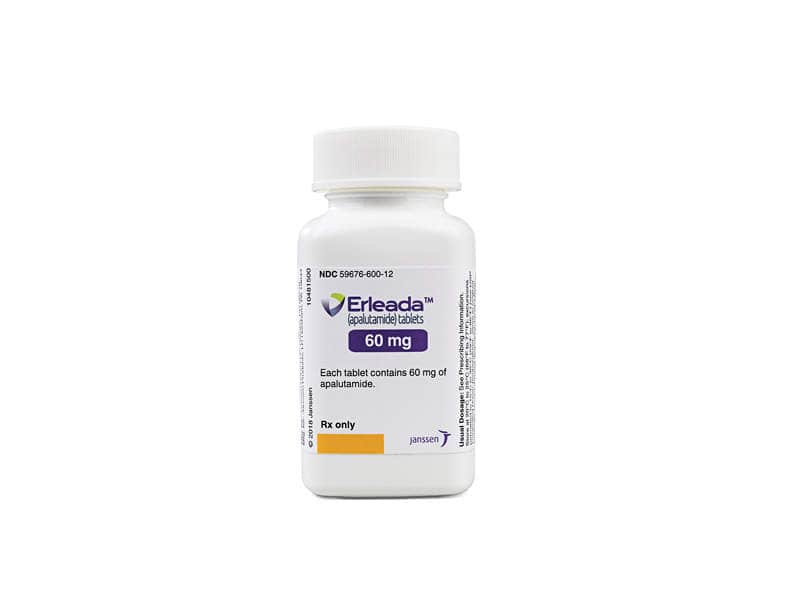
Johnson & Johnson has bagged EU approval for Erleada for non-metastatic, castration-resistant prostate cancer (nmCRPC), setting up a market challenge with Astellas and Pfizer’s Xtandi.
The European Commission cleared androgen receptor inhibitor Erleada (apalutamide) on the basis of the SPARTAN trial, which showed that the drug decreased the risk of distant metastasis or death by 72% and improved median metastasis-free survival (MFS) by more than two years. It is intended for use in patients deemed at high-risk of developing metastatic disease.
While the majority of early-stage prostate cancer patients are managed effectively by hormonal therapy, around 10-20% of prostate cancer cases are castration-resistant, and up to 16% of these patients show no evidence that the cancer has spread at the time that status is diagnosed.
The new indication comes almost a year after Erleada was approved for nmCRPC in the US, and around three months after Astellas and Pfizer picked up EU approval for their androgen receptor inhibitor Xtandi (enzalutamide) for the same indication.
Xtandi has also been approved for nmCRPC in the US, so the two drugs will now have to thrash it out head to head in two major geographies. For patients however, it means a new choice of treatments for a critical stage of prostate cancer that currently has few treatment options.
“One of the key goals in prostate cancer treatment is to delay the disease from spreading,” commented Simon Chowdhury, consultant medical oncologist, Guy’s and St Thomas’ Hospitals.
“Once the cancer spreads, it can become less responsive to treatment, impacting patients’ quality of life and ultimately worsening their prognosis. Median survival for these patients is approximately three years [and] it is crucial that we delay the development of metastases for as long as possible,” he added.
Erleada is one of 10 new drugs that J&J thinks could eventually make sales of more than $1bn a year, but a lot will depend on how it stacks up against Xtandi in the marketplace. J&J hasn’t said much about Erleada’s take-up yet, declining to give sales numbers in its third-quarter results, but may have more detail in its year-end report on 22 January.

J&J’s Jennifer Taubert
J&J’s head of pharma Jennifer Taubert said during J&J’s third-quarter results call that Erleada is likely to be something of a slow burner as “you wouldn’t anticipate to see the same type of uptake that you would in a later line of therapy. You really need to look at this as more of a chronic type of therapy with a chronic uptake ramp.”
Xtandi is also approved for more advanced, metastasised CRPC, where it competes with J&J’s $4bn-plus androgen synthesis inhibitor Zytiga (abiraterone acetate), and reported $180m in alliance revenues in the third quarter of 2018. Pfizer said the split of revenues it recorded for Xtandi in the period included a “relatively modest” contribution from the nmCRPC indication.
Zytiga lost a patent infringement appeal last year however, so the later-stage market is poised for the entry of low-cost generics which could also put J&J’s drug and Xtandi under pressure. That means for Pfizer and Astellas the nmCRPC segment could be increasingly important for its franchise – setting up what looks set to be a mighty marketing tussle between Xtandi and Erleada.




